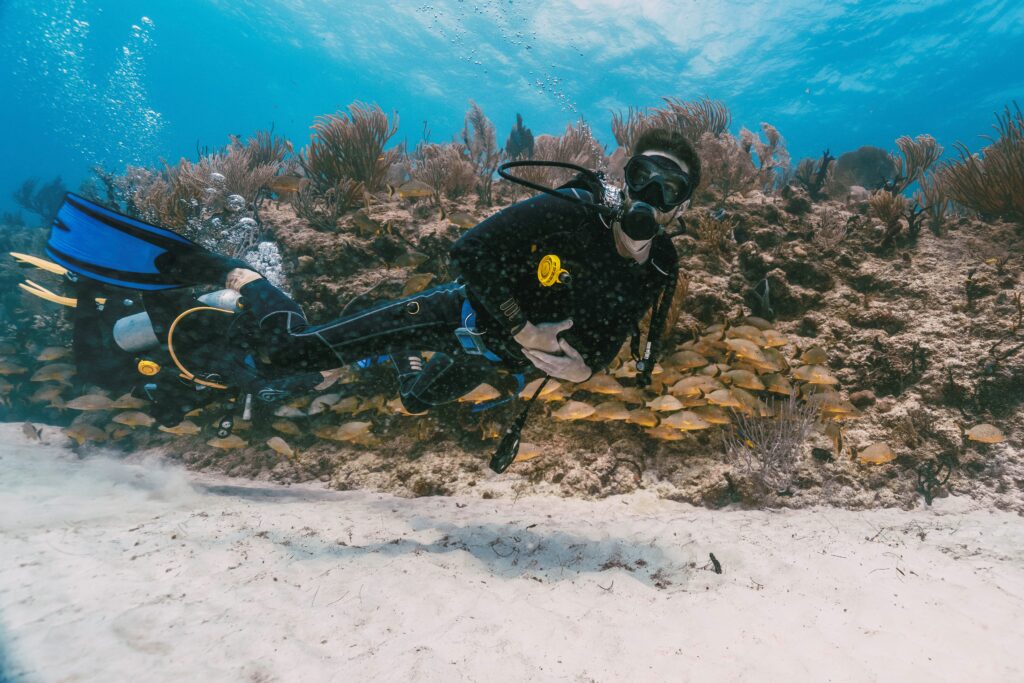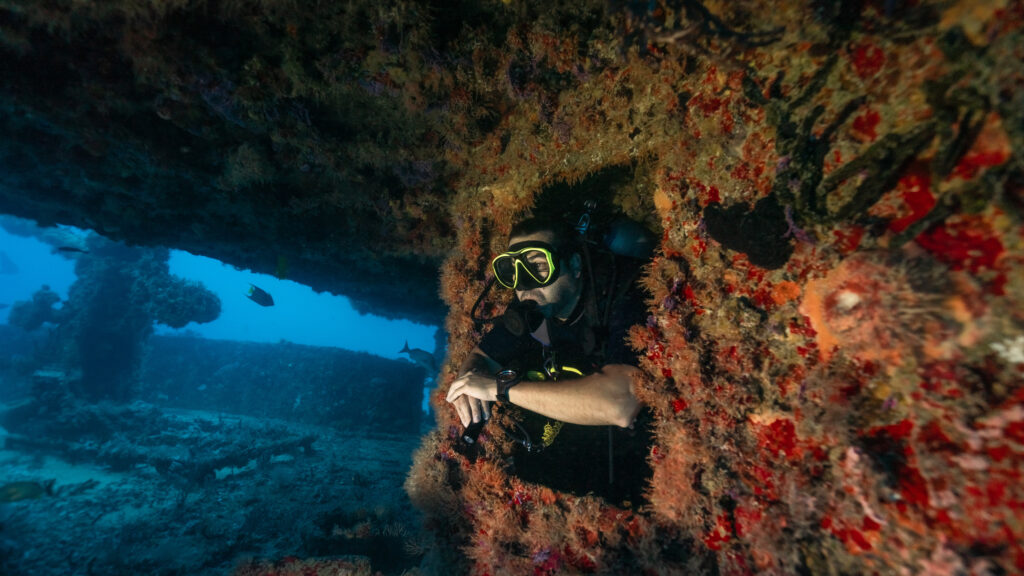What is a Air Compressor?

What is a Air Compressor? Diving beneath the ocean’s surface and exploring its hidden marvels is an exhilarating experience, the wonderment of which is enabled by the technologically advanced gear that divers wear. Among the critical components that ensure the safety and capability of these aquatic explorers is the air compressor—a fascinating piece of equipment […]
What is a Scuba Diver?

What is a Scuba Diver? A scuba diver is a person who engages in the recreational or professional activity of swimming underwater using SCUBA equipment. The term “scuba” is an acronym for “self-contained underwater breathing apparatus,” which allows scuba divers to breathe comfortably beneath the water’s surface while exploring the aquatic world at their leisure. […]
What is Scuba Diving?

Scuba diving is a recreational and professional activity where individuals explore underwater environments using self-contained underwater breathing apparatus (SCUBA) equipment. This equipment allows divers to stay underwater for extended periods, enabling them to experience marine life, shipwrecks, caves, and other submerged wonders. The ability to explore these otherwise inaccessible areas has made scuba diving a popular pursuit for adventure enthusiasts, marine biologists, and professional divers alike. Since its modern development in the 20th century, scuba diving has attracted millions of people globally, offering a unique blend of excitement, discovery, and tranquility beneath the waves.
What is Absolute Pressure in Scuba Diving Context?

Absolute pressure, a term frequently used in the field of scuba diving, refers to the total static pressure at a particular point. It is a vital concept that divers need to understand and appreciate to ensure safety during their underwater adventures. In technical terms, absolute pressure is the sum of the atmospheric pressure and the pressure due to any fluid column above the point of measurement. It is always measured relative to a perfect vacuum, which is devoid of all matter and hence bears a pressure of zero.
What is Aggressive Decompression when Scuba Diving?

What is Aggressive Decompression when Scuba Diving? Aggressive decompression, a pivotal term within the realm of scuba diving, represents a decompression schedule intending to shorten overall decompression time for a given pre-ascent dive profile. This practice operates on a delicate balance, accepting the increased risk of decompression sickness to diminish overall ascent time, which can […]
What is Hypoxia when Scuba Diving?

Hypoxia, defined as a deficiency of oxygen in the body, is a significant concern for scuba divers, as it can impair vital bodily functions, reduce consciousness, and lead to life-threatening conditions. This medical issue becomes especially relevant in the context of scuba diving, where a diver’s environment and the unique breathing conditions can increase the likelihood of insufficient oxygen levels. Hypoxia is not always immediately apparent, but recognizing and understanding its causes, symptoms, and prevention strategies can help divers stay safe underwater.
What is Water Pressure when Diving?

Water pressure is a crucial concept in scuba diving, defined as the force per unit area exerted by the weight of water. The weight of the water column above a certain depth creates this pressure. This pressure is not just from the top down, but it is exerted equally from all directions. The deeper a diver descends, the greater the water pressure exerted on their body.
What is an Electro Galvanic Fuel Cell (EGFC)?

An electro galvanic fuel cell (EGFC) is a type of electrochemical sensor used extensively in scuba diving equipment for oxygen monitoring. It operates based on the principle of generating an electrical current through a chemical reaction between oxygen and a fuel, typically a metal like lead or zinc. The current produced is directly proportional to the amount of oxygen present, making EGFCs crucial for ensuring safe breathing gas mixtures in underwater environments. This entry delves into the fundamental principles, historical development, technical specifications, applications in scuba diving, maintenance practices, and regulatory considerations of electro galvanic fuel cells.
What is the Maximum Operating Depth?

Maximum Operating Depth (MOD) is a critical concept in the field of scuba diving. It refers to the deepest depth at which a particular gas mixture can be used safely without the diver experiencing oxygen toxicity. Understanding and adhering to the MOD is essential for ensuring diver safety and preventing potentially life-threatening conditions. MOD varies depending on the gas mixture being used and is influenced by the partial pressure of oxygen within the breathing gas. By comprehending the significance of MOD, divers can plan their underwater excursions more effectively and reduce the risks associated with diving to greater depths.
What is Mixed Gas?

Mixed gas, in the context of scuba diving, refers to breathing gases other than air, which are used to extend bottom time, reduce decompression obligations, and manage the risks associated with deep diving. These mixtures can include combinations of oxygen, nitrogen, helium, and other inert gases, tailored to specific diving conditions and depths. By using mixed gases, divers can safely reach greater depths and explore environments that would otherwise be inaccessible due to the limitations of breathing air alone.
